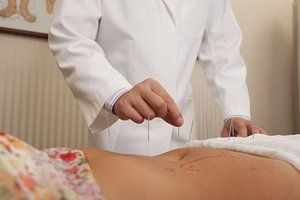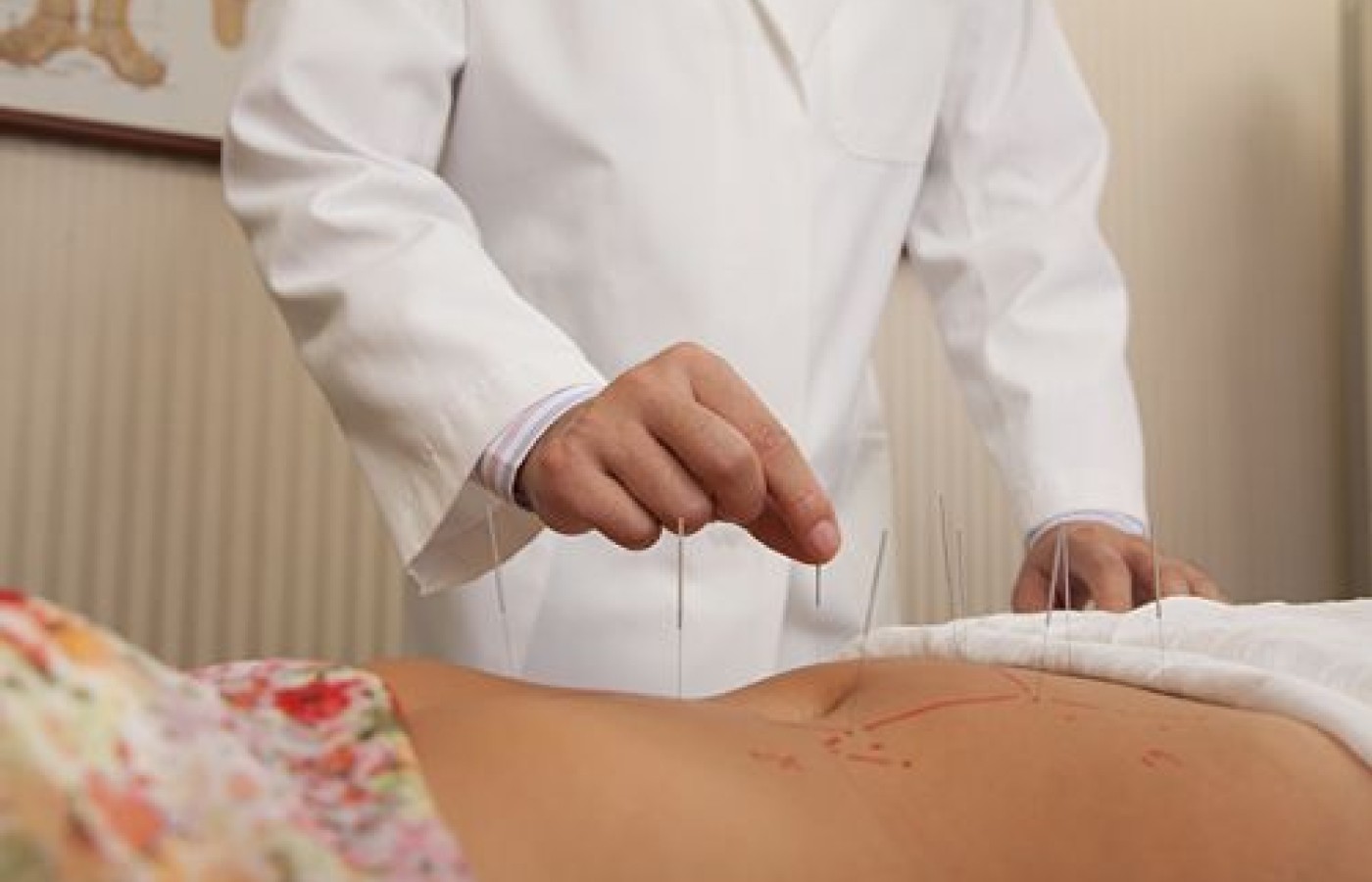The most important relationship I seek to nurture in the treatment room is the one a patient has with their own body. We live in a culture that teaches us to override pain, defer to outside authority, and push through discomfort. Patients often arrive hoping I can “fix” them, but the truth is, we can’t do the work for them. We can offer guidance, insight and support, but healing requires their full participation.
Hope & Healing for HIV/AIDS Patients: Emperor's College Develops Difference Makers
On the main drag through West Hollywood, a stone's throw from the famed Sunset Strip, sits Being Alive, a nonprofit organization that focuses on the health and wellness of people living with HIV and AIDS. The clinic offers an array of health care related modalities and services including chiropractic and psychotherapy; linkage to housing, transportation, and food services; help with medication and communicating with doctors; and much more.
One of the most popular services offered is acupuncture, which is made possible by student interns, doctoral fellows and supervisors from Emperor's College of Traditional Oriental Medicine. The college, located in neighboring Santa Monica, has had a clinical externship since January 2014.
Student interns from Yo San University have also provided treatments over the years. And between the two colleges and a small handful of dedicated licensed acupuncture volunteers, well over 2,000 acupuncture treatments are administered each year.
A Place of Gratitude
The recipients are exceedingly grateful to be stuck again and again with needles, week after week, year after year, because it helps. Many are alive after 30-plus years — surviving a disease that leveled their generation, decimated their friends, their lovers, and their communities. They survived despite harsh medications offered in the early (and not so early) days of the HIV/AIDS outbreak. They survived not just the physical disease, but also the mental and spiritual anguish inflicted by the experience.

Several long-term survivors of Being Alive believe that having acupuncture treatments early on was an important factor in their survival. One clinic-goer shared, "Acupuncture has been the most important aspect of my healing/wellness. I've been blessed to receive acupuncture for 27 years."
Another said, "Acupuncture has helped me in so many ways. About three months ago I had cranial nerve palsy and if it wasn't for me getting acupuncture as often as I did my recovery would have taken months. I give it all to the acupuncture that brought my eyesight back. I believe in it very much."
Clinic members eagerly await their turn for acupuncture treatments. The waiting area is filled with chatter as members exchange stories, offering each other encouragement and hope. They come to the clinic every other week, some every week, and some even twice a week. They wait happily, even when scheduling issues and traffic delays mean they may wait 45 minutes, or more.
After a course of treatments, patients see T-cell counts rise, chronic infections clear, neuropathy attenuate, and a brightening of the light at the end of the tunnel.
Becoming a Healer
The value of Being Alive to the LGBTQ community of Los Angeles is incontrovertible, as is its value to the educations of the several hundred AOM students that have staffed the clinic over the years.Two days a week, four hours each day, students and supervisors come from Emperor's College to treat patients. They participate in diagnosing and treating patients that typically present with a variety of medical issues, including varying stages of an HIV diagnoses.
These complex health care related issues crisscross several domains in a specialized medical mosaic. Such presentations necessitate an understanding of the integrative approach to treating and managing diverse disease symptomologies. Thus, forcing students to reach deep into their sac magique of acupuncture skills in determining a diagnosis.
"The Being Alive clinic offers students the rare opportunity to see a huge variety of cases, tongues, pulses, and medication combinations," said Dr. Jacques MoraMarco, Academic Dean at Emperor's College and clinical supervisor at Being Alive, "there is really nothing quite like it."
When confronted with life threatening diseases, the students' learning experience is greatly elevated. Beyond the physiological symptoms, patients present with a variety of emotional states ranging from helplessness, denial, sorrow, apathy and grief.
Students are challenged and encouraged to reach out and compassionately embrace the needs of these patients, offering hope and encouragement in the face of overwhelming odds.
"The degree of bonding and trust generated between patient and practitioner is difficult to recreate in the classroom setting, making the educational experiences that much more significant. It's a truly great opportunity for our students," said Robert Newman, Dean of Clinical Education at Emperor's College.
The sociological aspects of working within the West Hollywood LBGTQ community and supervising students can be a transformative experience as well. While working within the LBGTQ community, students are presented with opportunities to reflect on complex social issues like sexual identity, homophobia, empathy, compassion, and the impact stereotyping can have on the uninformed and/or misinformed.
On a professional level, the clinic environment demands showing up with your "A" game. Interns and doctoral fellows really need to be aware of the HIV/AIDS disease landscape and ideally be at least somewhat versed in virology, immunology, and even neuroscience.
Engaged In Care
Acupuncture, of course, is not a panacea, patients are not cured of HIV or its associated problems, but they can have a much better quality of life. Their pain is manageable. The side effects from their medications are controllable. They are working with acupuncture to make the most of what they have.
Founders John Mohr, Ron Rose, and Rick Ewing could not have envisioned back in 1986, when they opened the doors to Being Alive, how truly important it would become. Or how far its reach would be — setting in motion an organization made up of people living with HIV/AIDS. Yet even in their own struggle they would lend a helping hand, and advocate for their own community — all from the point of view of individuals fighting the same battle.
Today, the clinic serves as a vital partner in the education of future health care providers and a beacon of emotional support, treatment, education, and empowerment to thousands of people living with HIV/AIDS. To learn more about this organization, please visit beingalivela.org.



